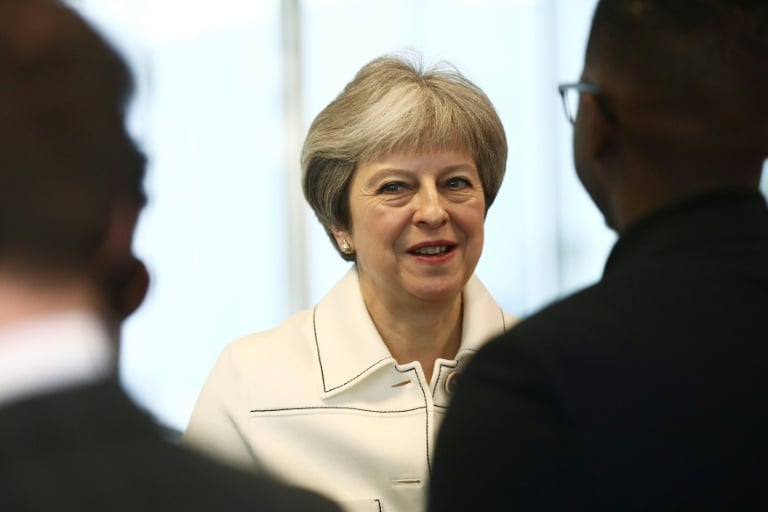The UK prime minister was forced by a journalist to confront the land issue, one which if given a choice she would have likely preferred to avoid.

British Prime Minister Theresa May.
After many analysts expected British prime minister Theresa May to ignore the issue of land expropriation entirely, she was evidently unable to do so after being confronted directly on the issue by an SABC journalist.
She responded that she did indeed back President Cyril Ramaphosa on the land issue after he assured her in a meeting that the ANC’s policy on land expropriation without compensation won’t result in a “smash and grab.”
May added that her government has supported land reform for some time, as long as it’s “legal.”
This appears to echo Ramaphosa’s sentiments.
The South African president seems to be walking a difficult tightrope between keeping potential voters who support expropriation without compensation happy and trying not to scare potential investors after pledging to get the economy back on track.
In March he said: “We are going to return the land to our people so that our people can have their birth right,” but added that this must be done “within the confines of the law”.
READ MORE: Theresa May unlikely to speak about land on her SA visit
“To those who still hold land, we are passing on a very powerful message that Freedom Charter says. The land must be shared by all the people of our country,” said Ramaphosa.
“We are not going to steal and grab land,” he added. “We are going to want to put the land to best use so our people can regain their wealth.”
The land issue is likely a difficult one for May to discuss at a time when she is looking to strengthen ties with South Africa and Africa in general as the UK moves closer towards Brexit.
She has commited to increasing investment in South Africa.
While the governments of Australia and the United States have taken official positions on South Africa’s land issues, the United Kingdom is likely to take a more diplomatic approach on the surface.
This, however, would not mean that South Africa’s former colonisers were sold on the expropriation of land without compensation, said political analyst Tshepo Tselapedi.
“Part of the problem is the nexus of a powerful white minority with established economic ties with places such as the UK, and the network runs deep.
“There is a lot of paranoia at the moment against the policy of expropriation, even though there has been no modality that has been put on the table.
“There needs to be some sort of communication from us to the UK. But, remember, government can’t have a position on the matter as we are still going through public hearings and other processes.
“The ANC only took a position on the broader discussion of the proposal and the modalities that they have looked at.”
Additional reporting by Simnikiwe Hlatsheneni
https://twitter.com/TC_Malele/status/1034362486185775105
Question from SABC on land expropriation without compensation. A murmer in the room. PM #TheresaMay says the UK has for some time now supported land reform that’s legal, that is supported by a democratic process. Pres Ramaphosa assured her at UK meeting it won't be a smash & grab
— carien du plessis (@carienduplessis) August 28, 2018
After confidently delivering her planned speech to business folk in Cape Town and answering questions from the UK media this morning, UK Premier Theresa May stuttered and stumbled over questions on land expropriation in South Africa.
— David Bamber (@DwBamber) August 28, 2018
For more news your way, download The Citizen’s app for iOS and Android.





